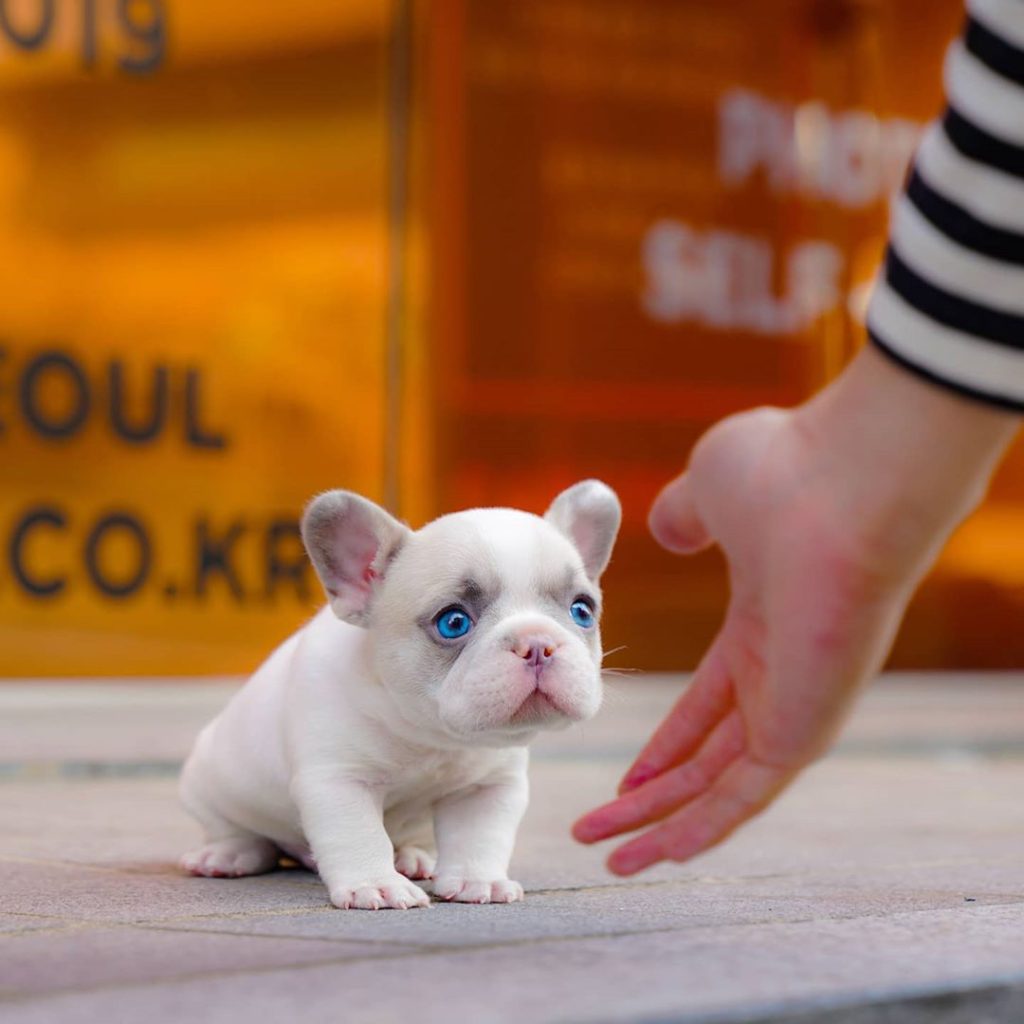Micro French Bulldog For Sale – What was once limited to boutique shops or high-end department stores can now be purchased from the comfort of one’s home. For sellers, the challenge lies in pricing items fairly and accurately representing their condition. For the buyer, it can feel like a great opportunity, a chance to acquire something they’ve been searching for, or maybe just the satisfaction of knowing that a good deal is within reach. This revival can be attributed to a combination of economic factors, growing awareness of environmental issues, and a shift in consumer attitudes toward sustainability and the value of pre-owned items. The materials, labor, and expertise that go into crafting these items naturally make them more expensive. It can be a metaphor for much deeper exchanges in life. Overpricing an item can lead to it sitting unsold, while underpricing it can result in lost potential revenue. A well-made product simply performs better. It is subjective, shaped by cultural norms, individual preferences, and the evolving standards of various industries. At its core, “for sale” signifies that something is available for purchase, but beyond that, it tells a story of desire, exchange, and transition. The advent of these online platforms means that consumers can hunt for items they might have otherwise overlooked or been unaware of, sometimes at a fraction of the original cost. However, it’s also important to recognize the darker side of this freedom. This sense of connection can also extend to the broader culture of quality goods, where consumers and creators share a commitment to excellence and a desire to preserve the craft and tradition behind these products. This has opened up new possibilities for people to find exactly what they’re looking for, whether it’s a specific brand of furniture or a limited edition item that was once sold out. The adage “you get what you pay for” rings especially true in the realm of quality goods. But the financial aspect is only one part of the equation. This has opened up new opportunities for small businesses to thrive and for consumers to access unique, well-made items that they might not have encountered otherwise. The satisfaction of purchasing quality is often deeply intertwined with the knowledge that your money is going toward something that truly deserves it. There’s a certain art to selling something. Entrepreneurs can launch businesses from their homes, and freelancers can offer their skills to clients across the world.

miniature blue french bulldog puppies for sale/blue frenchie for sale
The perfect puppy peoplefind a puppyreserve now for holidays

Micro French Bulldog For Sale of all time Don t miss out bulldogs
The perfect puppy peoplefind a puppyreserve now for holidays

micro french bulldog puppies for sale/micro mini french bulldog
The perfect puppy peoplefind a puppyreserve now for holidays

Tiny French Bulldog for sale
The perfect puppy peoplefind a puppyreserve now for holidays

Micro Mini French Bulldog/mini French Bulldog For Sale
The perfect puppy peoplefind a puppyreserve now for holidays

Micro French Bulldog Puppies For Sale Mini Teacup Puppies
The perfect puppy peoplefind a puppyreserve now for holidays

teacup french bulldog puppies for sale/teacup french bulldog for sale
The perfect puppy peoplefind a puppyreserve now for holidays

Rolly Merle Mini French bulldog for sale, Teacup French Bulldog is rare
The perfect puppy peoplefind a puppyreserve now for holidays

Micro French Bulldog Puppies For Sale Mini Teacup Puppies, INC
The perfect puppy peoplefind a puppyreserve now for holidays

Micro French Bulldog for sale
The perfect puppy peoplefind a puppyreserve now for holidays
It’s a moment of transition, and as with all transitions, it brings with it both excitement and uncertainty. They are investments, not just purchases, and their value is often felt long after the original transaction has ended. The longer something is used, the less likely it is to contribute to the growing problem of waste. In a world that often prioritizes convenience
The notion of a business for sale is one that captures the imagination of many. For people looking to furnish their homes, build a wardrobe, or invest in certain hobbies or collections, second-hand goods often provide a way to access items they might otherwise be unable to afford. The environmental benefits of buying second-hand goods go beyond just reducing the need for new production. Conversely, periods of economic growth may lead to more businesses being sold due to increased valuations and higher demand. Second-hand record stores and online marketplaces like Discogs have become hotspots for vinyl enthusiasts, providing a platform for buying, selling, and trading records. The concept of a circular economy, where products are reused and repurposed instead of discarded, is central to the appeal of second-hand goods. Whether it’s the smooth finish of a well-polished wooden table or the satisfying feel of a perfectly balanced knife in your hand, quality goods evoke a sense of pride in their ownership. Those who are born into privilege have the means to buy their way to the top, while others are left behind, forced to sell their time, energy, and even their dignity in order to survive. As more people embrace the idea that everything has value, second-hand goods will continue to be a central part of the way
Quality goods for sale have always held a special place in markets around the world, captivating consumers with their promise of durability, performance, and timeless appeal. For many people, there is something uniquely satisfying about sifting through racks of clothes, rummaging through bins of books, or browsing shelves of home goods in search of that perfect item. For some, it’s a matter of balancing budgetary constraints with their desire for quality. For some, selling something may feel like a sacrifice, while for others, it may feel like an investment in their future. For instance, businesses in industries such as technology, renewable energy, or e-commerce may attract more buyers due to their perceived growth potential. For those who enjoy the tactile experience of shopping and the sense of discovery that comes with it, thrift stores offer a personal and immersive way to shop for second-hand items. Even in a marketplace where everything is commodified, there is still room for those moments and experiences that transcend value. Many buyers are drawn to industries where they already have experience, while others may seek a business in an entirely new field in order to diversify their portfolio. This has made it easier for people to find items that might have otherwise been out of reach, whether it’s a rare collectible, an antique, or a product from another country.
It’s a world where even personal growth, self-actualization, and emotional healing are framed as commodities, available for purchase at any time, but only if you’re willing to pay the price. These goods, once owned and used by someone else, offer a unique opportunity for both sellers and buyers to exchange items that might otherwise go unused. While there are certainly markets where affordable goods are a necessity, quality goods for sale often come with a premium price tag. The satisfaction of purchasing quality is often deeply intertwined with the knowledge that your money is going toward something that truly deserves it. Many people find that buying second-hand furniture allows them to acquire high-quality pieces that are built to last, often with a level of craftsmanship that is hard to find in mass-produced furniture. In a circular economy, items are kept in use for as long as possible, reducing the need for new resources and minimizing environmental harm. Once a suitable business has been identified, the buyer usually begins the due diligence process, which involves reviewing all relevant documents, financial records, and contracts. Websites like eBay, Craigslist, Facebook Marketplace, and Poshmark have made it easier than ever for individuals to sell their unwanted items and for buyers to find exactly what they are looking for. Even in a marketplace where everything is commodified, there is still room for those moments and experiences that transcend value. In the end, the real challenge is to navigate this world — to understand the forces of commerce that shape our lives, while holding onto those things that remain beyond the reach of money. But is this a reflection of reality? Or is it an illusion we’ve created, an idea we’ve accepted in order to make sense of a world that increasingly revolves around consumption and profit?
At the core of this idea lies the assumption that everything, no matter how unique or rare, can be exchanged. The marketplace, for all its flaws, has brought about great innovations. It is subjective, shaped by cultural norms, individual preferences, and the evolving standards of various industries. While some people may be hesitant to purchase pre-owned electronics due to concerns about quality or reliability, the second-hand market for electronics has become increasingly trustworthy. For people looking to furnish their homes, build a wardrobe, or invest in certain hobbies or collections, second-hand goods often provide a way to access items they might otherwise be unable to afford. Success after the acquisition depends on a variety of factors, such as effective leadership, market conditions, and the buyer’s ability to make improvements and capitalize on growth opportunities. The rise of minimalism and a desire for unique, vintage items has also played a role in the growing popularity of second-hand goods. Books, records, and collectibles are also highly sought after in the second-hand market. Entrepreneurs can launch businesses from their homes, and freelancers can offer their skills to clients across the world. For the buyer, acquiring such a piece may carry with it the honor of preserving a legacy, or the satisfaction of adding a unique, timeless item to their own collection.